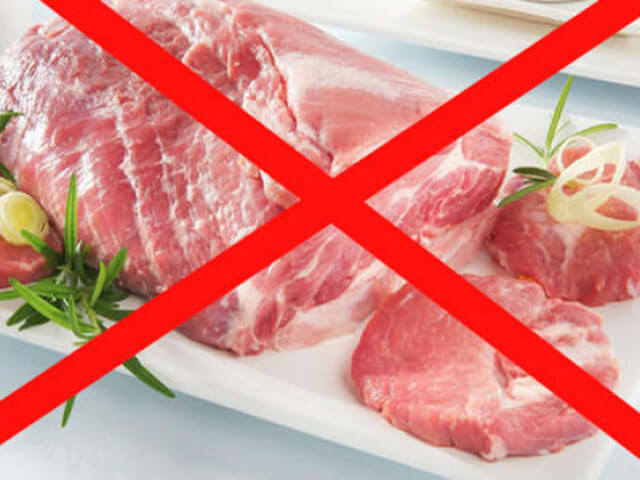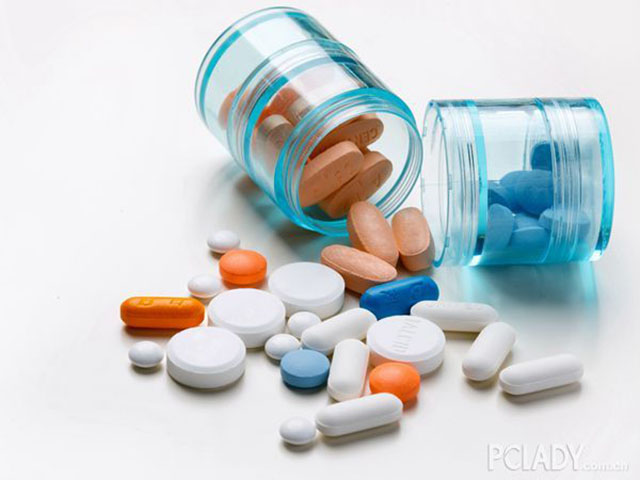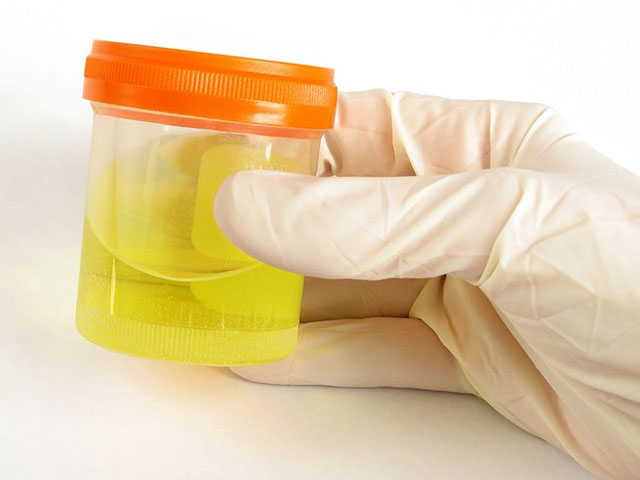Proper nutrition with increased creatinine in the blood
Creatinine arises from the metabolite creatine, which is essential for energy metabolism in muscle and nerve cells. In fact, it is a by-product of everyday muscle contractions. Under normal conditions, it is filtered by the kidneys and excreted in the urine.
Normal blood creatinine levels are 60 to 110 µmol/L for men and 44 to 97 µmol/L for women.
Excessively elevated creatinine can be a signal of kidney damage or chronic kidney failure.
Functional kidney damage may be due to severe infection or low blood flow to the kidneys. In turn, decreased blood flow or low blood pressure is a possible result of heart failure, heart disease, or severe dehydration.
A temporary increase in creatinine may occur regardless of kidney function due to:
- taking certain supplements or medications
- dehydration
- eating a lot of meat or protein
- building muscle mass through weight lifting exercises.
Another reason for the increase in creatinine in the blood is the lost glomerular function of the kidneys. Diseases that affect the microscopic blood vessels in the glomerulus, such as diabetes, inflammatory or autoimmune kidney disease, can damage the delicate structure involved in kidney filtration. Some hereditary conditions (such as Goodpasture's syndrome), a response to infectious agents (such as streptococci), and problems caused by medications can also lead to poor kidney function.
In athletes with a large amount of muscle mass, the level of creatinine can be increased, there is nothing dangerous in this.
Most of the underlying causes of elevated creatinine cause a few specific symptoms, but a doctor can learn the exact cause by looking at the following "clues":
- Medication History: a number of drugs can cause an increase in creatinine levels. These include, in particular, the antiulcer drug Cimetidine, angiotensin receptor blockers, non-steroidal anti-inflammatory drugs, the antihypertensive drug Captopril, and the immunosuppressive drug Cyclosporine. Elderly male patients with cardiovascular disease who are taking ACE inhibitors and/or thiazolidinedione drugs are more likely to have an increase in serum creatinine within a few months of starting treatment. Although discontinuation of the drug leads to a decrease in creatinine levels, the long-term effect of a brief increase in serum creatinine on the progression of renal disease is not known.
- Food history: A vegetarian diet is associated with a decrease in creatinine, and the consumption of boiled meat causes a transient increase in serum creatinine. Creatine is often taken as a supplement to increase muscle mass and increase athletic performance. Long-term consumption of creatine (more than 10 g per day) can increase the concentration of creatinine in the blood serum.
- Recent Operations: Elevated creatinine may indicate hypovolemia (decrease in circulating blood volume), renal ischemia due to arterial occlusion during cardiac surgery, or problems with the kidney transplant. Skin lesions, blue toes, pancreatitis, stroke, or angina following arterial manipulation, vascular surgery, stent placement, or cardiac catheterization may result from multiple organ failure syndrome. People with one kidney will have higher creatinine levels (up to 160 µmol/L) than people with both kidneys.
- Anamnesis: It is important to establish whether the patient has a history of chronic or acute renal failure. Other underlying conditions that can cause an increase in creatinine levels include: hypertension (hypertensive nephropathy), diabetes (diabetic nephropathy), inguinal lymphadenitis in men and women, autoimmune diseases (vasculitis), cirrhosis of the liver, lymphoproliferative disorders, and infections (cryoglobulinemia).
- Pregnancy: increased creatinine level - suspicion of preeclampsia. However, kidney disease is often exacerbated during pregnancy and should be ruled out first.
Proper nutrition with increased creatinine in the blood
 Many foods should be avoided when creatinine levels are above average. The goal of nutrition with elevated blood creatinine is to protect residual kidney function and prevent kidney failure.
Many foods should be avoided when creatinine levels are above average. The goal of nutrition with elevated blood creatinine is to protect residual kidney function and prevent kidney failure.
Doctors know that people with kidney problems always have elevated blood creatinine and its level rises to a dangerous degree, usually at least 560 µmol/L. This leads to the need for hemodialysis or a kidney transplant.
Eating certain foods can increase creatinine levels, so the following should be avoided in the diet:
- Foods high in protein
A low protein diet is usually recommended for patients with kidney disease, and this is because protein intake increases the workload on the kidneys, and therefore leads to an increase in creatinine levels. Beans, beans, fish, milk, egg whites and lean meats are all high protein foods and should be limited. However, to meet the physical needs of the body, patients with kidney disease can eat small amounts of fish, milk, and lean meats. They contain high-quality protein and the kidneys do not carry a heavy load. Peggy Harum, a dietitian with the American Kidney Association, explains that patients should consume 0.6 grams of protein for every kilogram of body weight per day. How much protein to consume every day? It depends on the degree of damage to the kidneys and the condition of the disease. Only the attending physician can give an accurate recommendation. Limiting the consumption of meat and other members of the “protein family” is not a permanent method for lowering creatinine levels, but it is a simple and useful method for controlling high creatinine levels.
- Foods rich in phosphorus and potassium
Elevated levels of potassium and phosphorus in the body, due to insufficient levels of kidney function, are a typical problem for patients with kidney disease and elevated creatinine.
Therefore, if blood tests show that the amount of potassium and phosphorus is increased, foods containing these substances should be strictly limited.
- Contains a lot of potassium: avocado, ground red pepper, chocolate, dried apricots, prunes, currants, raisins, pistachios, various nuts, pumpkin seeds, sunflower seeds and so on.
- Phosphorus is found in foods such as: bran, pumpkin seeds, sunflower seeds, wheat germ, cheese, sesame seeds, nuts, bacon, and so on.
Since malnutrition with elevated blood creatinine increases the risk of diabetes, high blood pressure and cardiovascular disease, patients should consult an experienced nutritionist. He will develop a nutrition plan to help manage kidney disease and any other medical conditions.
Is it possible to lower blood creatinine with drugs, foods and dialysis
Creatinine is simply a product of metabolism in our body. Together with other waste products, it leaves the body through urine. With increased creatinine, a large amount of toxins will accumulate in the blood and poison the body. Therefore, high creatinine also means high levels of toxins in the blood.
Dialysis is a medical procedure in which the blood is purified using a special machine, and then the purified blood is poured back into the body through a tube. Dialysis helps in lowering creatinine, but it is not a long-term solution because the procedure does not repair kidney damage to restore kidney function. That is, dialysis is just a way to temporarily cleanse the blood of toxins.
How to lower the level of creatinine in the blood without resorting to dialysis?

As a result, the conversion of creatine to creatinine is slower and less toxins are formed in the blood.
Aim for six to nine hours of sleep per night, seven or eight hours is ideal. In addition, sleep deprivation can lead to physical stress. As a result, the kidneys will be less able to filter out creatinine.
- Take hypoglycemic drugs(after consulting a doctor). One of the common causes of kidney damage is diabetes. It is very important for diabetics to maintain normal insulin levels. There are certain medications you can take to control your insulin levels. One of the most commonly prescribed hypoglycemic drugs is Repaglinide.
- Creatinine is lowered by lowering blood pressure. Hypertension is a contributing factor to kidney damage. The doctor may prescribe drugs with benazepril and hydrochlorothiazide.
- Take medication to lower creatinine levels. For this purpose, the doctor may prescribe Ketosteril. The regular dose is usually 4 to 8 tablets per day. Other creatinine-lowering drugs: alpha-lipoic acid (an antioxidant) can be used to help activate the kidneys and neutralize toxins and chitosan, a weight management supplement that can also reduce the amount of creatinine in the blood. Obese people should be regularly tested to determine the level of creatinine and cholesterol in the blood. The norm of cholesterol in the blood (total, that is, both “bad” and “good”) is up to 5.2 mmol / l or 200 mg / dl.
- Avoid intense physical activity. This will prevent the conversion of creatine to creatinine.
- Cinnamon- one of the plants used at home to reduce high levels of creatinine. It is considered as a diuretic that can help increase diuresis. People with urinary problems can drink cinnamon tea or add it as a condiment to lower blood creatinine. In addition, patients with kidney disease may (with the permission of their physician) take cinnamon in combination with ginseng and dandelion.
What does high creatinine in urine mean?
Rhabdomyolysis is the medical term for the breakdown of muscle cells that elevated creatinine in the urine can cause.
This may happen due to:
- long distance running;
- muscle injury;
- kidney problems;
- electric shock;
- as a result of certain infections.
Kidney problems that can lead to elevated urinary creatinine include the following:
- kidney failure;
- glomerulonephritis;
- obstructions within the urinary tract.
To find out how much creatinine is in the blood and urine, a special test (creatinine clearance) is performed.
 It includes blood sampling and the usual act of urination and does not cause any discomfort. There are also no risks associated with this test.
It includes blood sampling and the usual act of urination and does not cause any discomfort. There are also no risks associated with this test.
Why do you need a creatinine clearance test?
This test is done to see if the kidneys are working properly. It gives clearer results than a single blood test. Creatinine is removed from the body and this "duty" lies entirely with the kidneys. Elevated creatinine in the urine may indicate a kidney problem; that is, the kidneys are unable to excrete creatinine. It could also mean a muscle problem, as the muscle cells send creatinine to the kidneys.
How the test is performed:
After the patient provides a urine sample, it is tested in a laboratory.
How to prepare for the test
- Your doctor may ask you to temporarily stop taking certain medications so that they do not interfere with the results of the test. Be sure to tell your healthcare provider about all medications you are taking. These include antibiotics with cefoxitin or trimethoprimacimetidine.
- Do not do any strenuous exercise for 2 days before the test.
- Do not eat more than 227 g of protein food during the day before the blood creatinine test and urinalysis.
- Drink water, juices, and herbal teas while collecting urine, but avoid coffee and black tea. The latter are diuretics.
Normal urinalysis results
- Urinary creatinine (a 24-hour sample collected during both daytime and nighttime urination) can vary in men under 40 years of age within 106-140 ml / min, and in women under 40 years of age - within 85-105 ml /min
- Another way of expressing the normal range for test results is 14 to 26 mg per kg of body weight per day for men and 11 to 20 mg per kg of body weight per day for women.
Abnormal urine creatinine results may be due to any of the following conditions:
- Passion for meat products.
- Kidney problems, such as tubular cell damage or pyelonephritis.
- Too little blood flow to the kidneys.
- Destruction of muscle cells (rhabdomyolysis), or loss of muscle tissue (myasthenia gravis).
- Obstruction of the urinary tract.
The presence of a low level of creatinine in the blood shows nothing but the effective work of a pair of kidneys.
With normally functioning kidneys, the level of creatinine in the urine compared to the blood should be high.
Conversely, if the level of creatinine in the urine is low and the level in the blood is high, this indicates a problem that should be seen by a doctor.




